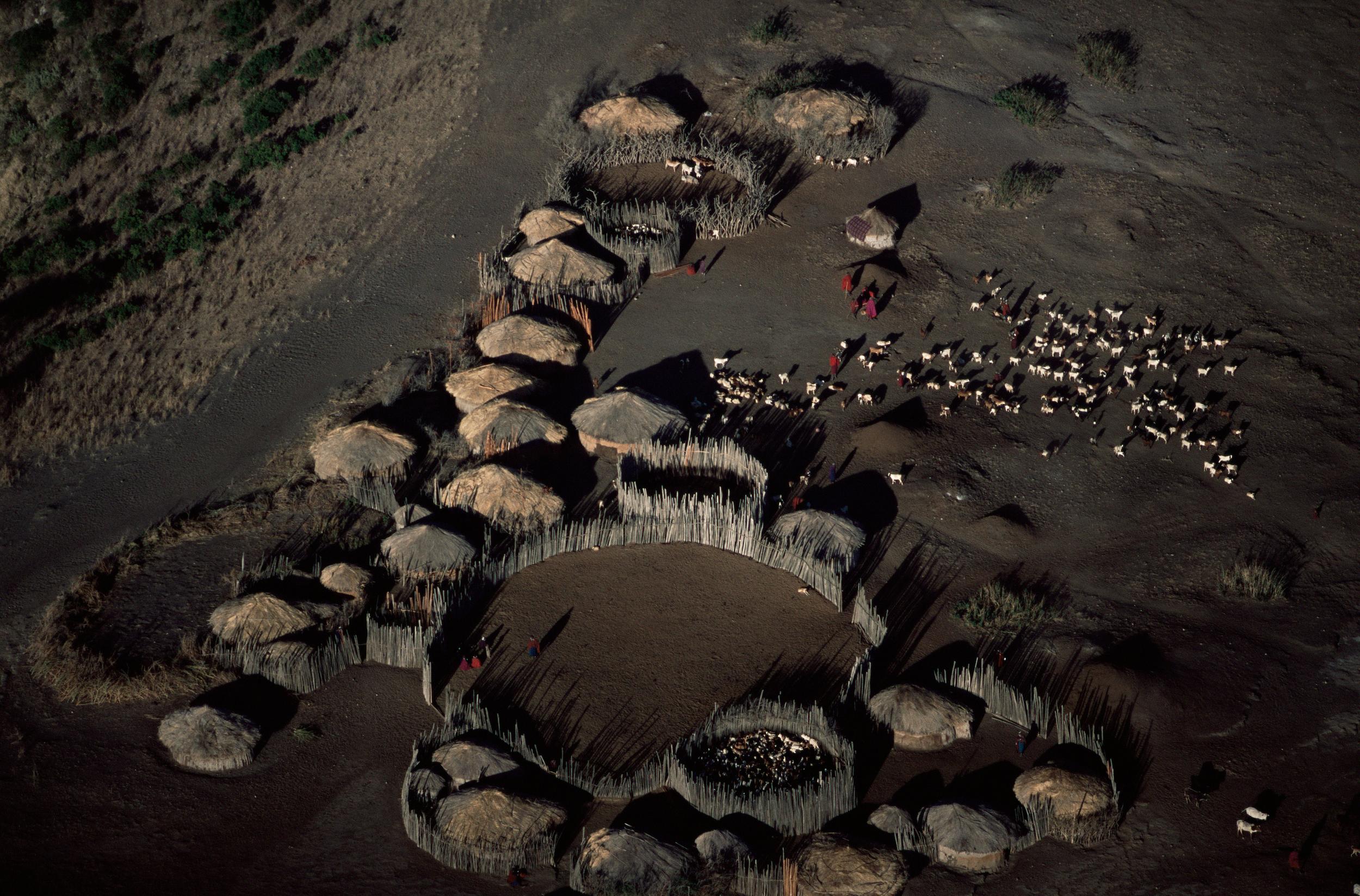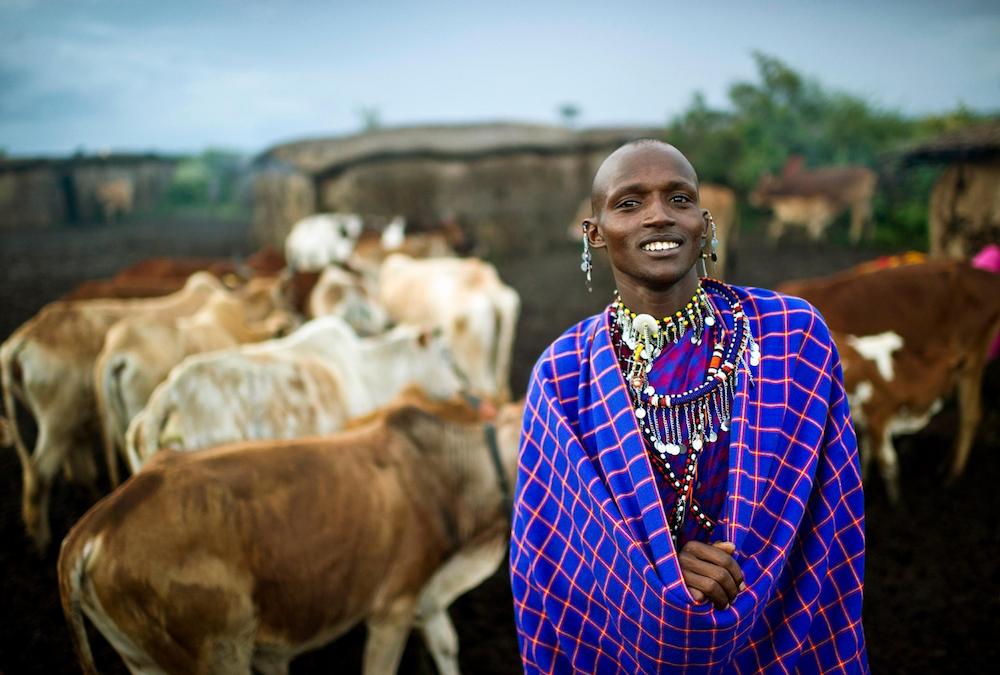This statement is the foundation upon which Indigenous Movement for Peace Advancement and Conflict Transformation (IMPACT), one of Home Planet Fund’s seven partners in East Africa, is built.
If you know only one thing about pastoralism, this would be it. Yet this way of life is so often misunderstood, especially now.
Pastoral lives and livelihoods are both dependent upon and deeply connected to nature. Pastoralists can be defined as people who derive most of their income and subsistence from keeping livestock in natural pastures, with humans and livestock co-existing in a symbiotic relationship. In Kenya, this includes communities of the Masaai, Turkana, Pokots, Samburu, and Rendile; each of which may be semi or fully nomadic, with recurrent season migration along traditional routes. This is the primary source of livelihood to millions of people in Kenya.
They exist amidst a fragile and precarious environment that is known for having long dry spells, alongside low and sporadic rainfall.
Pastoralism is a huge contributor to local and national economies, with more than 12% contributed to the Gross Domestic Product in Kenya alone. This figure is understood to be inadequate, given it does not include the value of livestock in subsistence and socio-cultural values, which are the core components of pastoralism itself.

Home Planet Fund partners working across Uganda, Kenya, and Tanzania steward roughly 1.6 million square kilometers of land. As they move with their animals across the land, the natural cycle of cattle and goats grazing and fertilizing, promotes the growth of grass and other plants that absorb carbon and is naturally beneficial to the Earth.
Today, however, pastoralists face numerous challenges.
- Pastoralism is often undervalued due to limited information on the economic value of pastoral systems. This leads to inadequate policy and institutional support in addition to weak organizing among the pastoralists themselves.
- Sustainable livestock production is worsened by the failure of institutions to guard against both poor land and natural resource governance, alongside discriminatory policies.
- Historical marginalization from both pre- and post-colonial governments. Governance failures, along with the institutional structures necessary to implement pro-pastoralist policies within political agendas and socio-economic planning continues to this day. Governments also often tend to portray pastoralist groups as backward and in need of modernization. From this stem negative attitudes and narratives directed towards pastoralists.
- An insecure land tenure system. This means pastoralists’ access to the lands traditionally accessible to them is becoming increasingly under threat. There also exists increasing competition and interest in their lands for large-scale land based investments like mega-infrastructure projects, biofuels, military camps, and private ownership ventures that target pastoralist lands.
Underscoring all of this, ever-worsening environmental degradation poses perhaps the largest major challenge. Prolonged droughts, along with increasing desertification threaten the lands and waterways upon which their entire way of life depends.
These are many of the reasons why Home Planet Fund’s partners in East Africa are working tirelessly to protect pastoralists and their efforts to secure tenured access to their lands.
IMPACT Kenya’s work delivers tangible, life-changing results for Indigenous communities. We’ve secured 1.7 million acres of communal land and supported 48 groups comprising over 2,000 participants in eco-enterprises, directly enhancing the lives and livelihoods of thousands. These achievements are more than numbers—they represent real people reclaiming their land and heritage and shaping their futures. From a Maasai woman leading a beekeeping enterprise to a youth group restoring degraded rangelands, we’re witnessing the power of Indigenous-led change.Malih Ole Kaunga, the Founder and Director of IMPACT Kenya
IMPACT, based in Nanyuki, Kenya, was founded to promote Indigenous peoples’ rights and emerged to address human rights violations against pastoralist communities. Like Home Planet Funds’ other six partners in East Africa, it has gone on to become a critically important force in community development, governance, land rights, and policy advocacy.
Home Planet Fund’s other partners in East Africa include:
- RECONCILE (Resource Conflict Institute) – has active programs covering rangelands governance and management, climate change, livelihoods and food security, institutional strengthening, and land governance, tenure security and investments.
- Indigenous Livelihoods Enhancement Partners (ILEPA)
- Mainyoto Pastoralists Integrated Development Organization (MPIDO)
- Pastoralists Indigenous Non Governmental Organizations Forum (PINGO’s Forum)
- Ujamaa Community Resource Team (UCRT)
- Dynamic Agro-Pastoralist Development Organization (DADO)
To keep the pastoralist way of life, our African partners need support from their governments. Implementation of community land acts needs to be fast tracked. Legislation supporting pastoral livelihoods and ecosystem management awaits implementation, as does other progressive land legislation that has already been passed.
Their work continues to provide direct evidence that Indigenous wisdom and its inherently practical applications, is a window through which to view the global challenges facing all of us. The work of pastoralists offers a perfect example of a sustainable way of life that also serves as an economic model for local communities.
Home Planet Fund, along with our pastoralist partners, are working towards a shared vision where Indigenous voices play an increasingly powerful role in shaping government policies, and their ancestral wisdom guides our conservation efforts. Through their efforts, great progress has been made in supporting pastoralists, their rights, and securing their tenured access to their lands.
The interconnection of land, livelihood, and identity isn’t just a framework—it’s the living, breathing essence of Indigenous existence. By nurturing this triad, we’re not only preserving cultures but also cultivating solutions for global sustainability challengesMalih Ole Kaunga
In early November 2024, Home Planet Fund will be joining our pastoralist partners in East Africa for a deep dive into what they are doing for the Earth, for their people, and for all of us.
We look very forward to sharing those stories with you upon our return.
